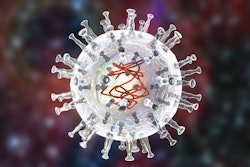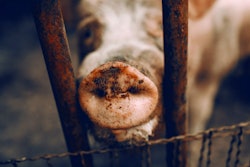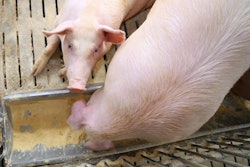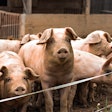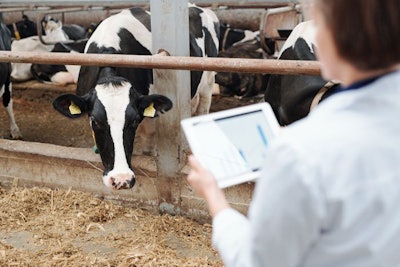
Some ag research, including work on ASF, has been put on hold due to COVID-19-related delays
At Kansas State University, associate professor Cassandra Jones was up to her neck studying African swine fever (ASF) when the novel coronavirus (COVID-19) pandemic began, and she learned that her research would be delayed indefinitely.
Like many agriculture researchers around the world, Jones’ position, and those of her lab and farm assistants, are considered “essential” functions that must carry on during the global pandemic. But while animals continue to be fed and even bred for research purposes, only one of Jones’ projects was able to move forward — and even that project will remain incomplete until coronavirus-related restrictions are lifted.
But after that, ag economists predict a sudden surge in funding for animal research, particularly for those who study novel diseases like ASF.
Jones’ recent work involved feeding animals ingredients deliberately infected with ASF to learn more about how the virus spreads. The work required her team to wear full personal protective equipment (PPE) to avoid accidentally spreading the virus, which has not yet been introduced in the U.S. outside laboratory settings. So when COVID-19 broke out, Jones was directed to wrap up her work by collecting the final samples she needed, and then freeze them so she could finish the project later, to free up the PPE for health care workers.
“As we had a spike in demand for PPE, we had to shift research around to allow the PPE to be used by those who most needed it,” she said.
At this point, she said, new projects are not being approved, and the only research moving forward is tied to COVID-19 in some fashion—finding vaccine candidates or studying where the virus came from.
‘Non-essential’ projects shut down
Other researchers studying topics outside ASF have experienced similar circumstances, At the University of Nevada, Reno, postdoctoral researcher Aaron Norris said projects deemed non-essential have been asked to shut down or reduced to skeleton crews.
“Mostly we’re just feeding and samples are collected, but not immediately processed,” Norris said. “If we can store them, we go ahead and store them. Once we get the OK to be back in the labs full time, we will start processing then.”
Jones worries this now two-month delay in agricultural research will result in long-term consequences, particularly for projects intended to stop the spread of ASF.
“The virus continues to evolve and spread globally, but our knowledge of it has become stagnant,” she said. “Those are two months of potential research projects that, those projects will get done, but not in relation to the virus’ evolution. We may get an answer, but we will get the answer two months later than we need it.”
Surge in funding on the way?
But on the whole, Jones said, agriculture research has fared better than other fields. And it may soon see a surge in funding and interest from outside parties, according to several experts in the field.
“I work with different agencies on policy and, generally speaking, the best thing about [the pandemic] is there is an incredible realization of the importance of science,” said David Zilberman, a professor in the department of agricultural and resource economics at the University of California-Berkeley. “Almost every place in the world is realizing that scientific knowledge is important.”
Zilberman believes this rising interest in science — and in animal science in particular — will result in additional funding for researchers who study novel animal diseases, including ASF.
Tim Kurt, scientific program director for the Foundation for Food and Agriculture Research, concurred with Zilberman. In the short term, he said, he is worried about the availability of grants and funding, particularly for young researchers who rely on these resources to start their careers. But long term, he said, COVID-19 has presented an interesting opportunity for young scientists with the right skill set. FFAR is offering funding for researchers interested in studying how viruses spread between species, and who are interested in studying supply chains.
“This is a good opportunity, a silver lining that gives research opportunities in areas that are difficult to fund,” Kurt said.


